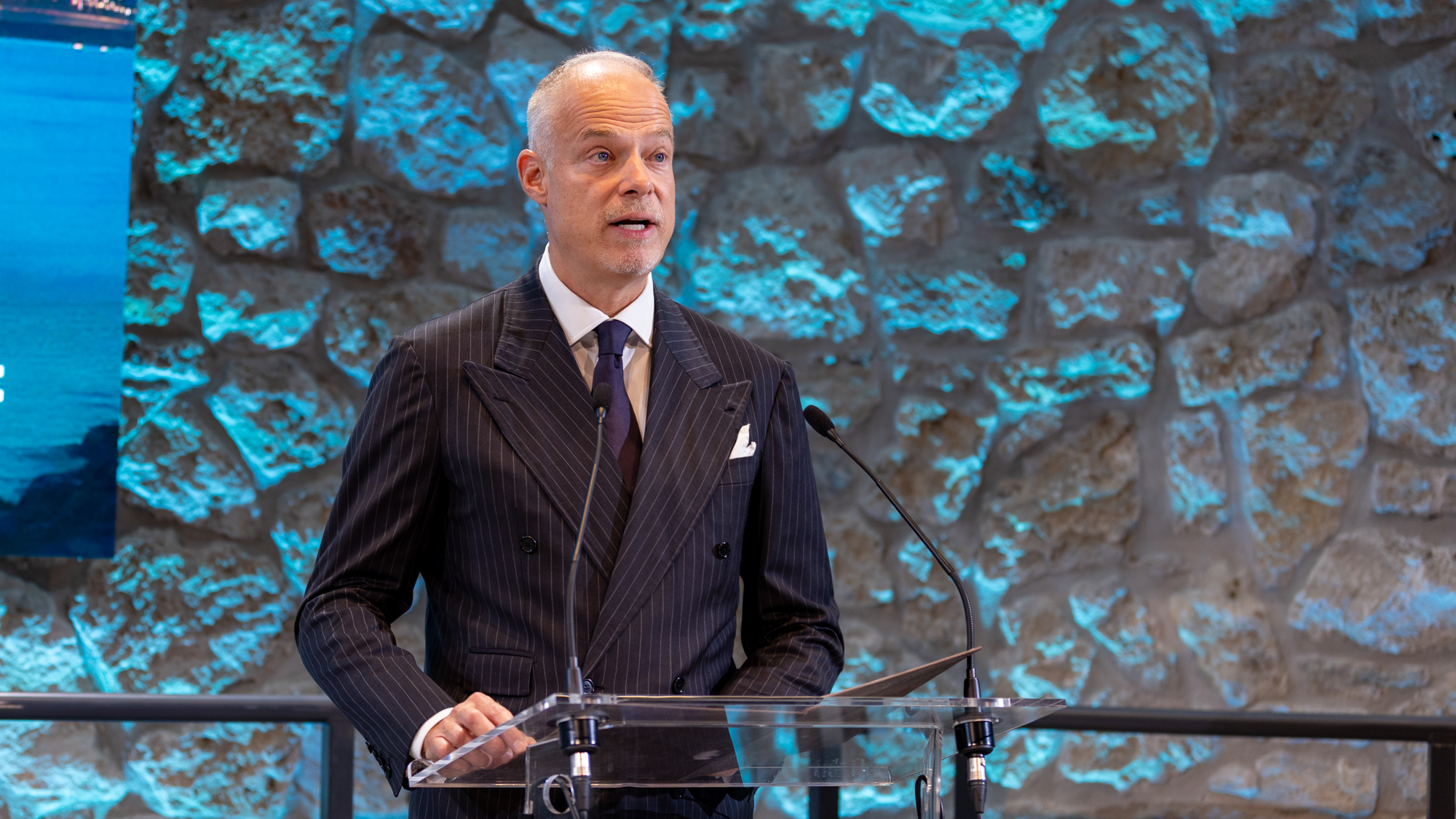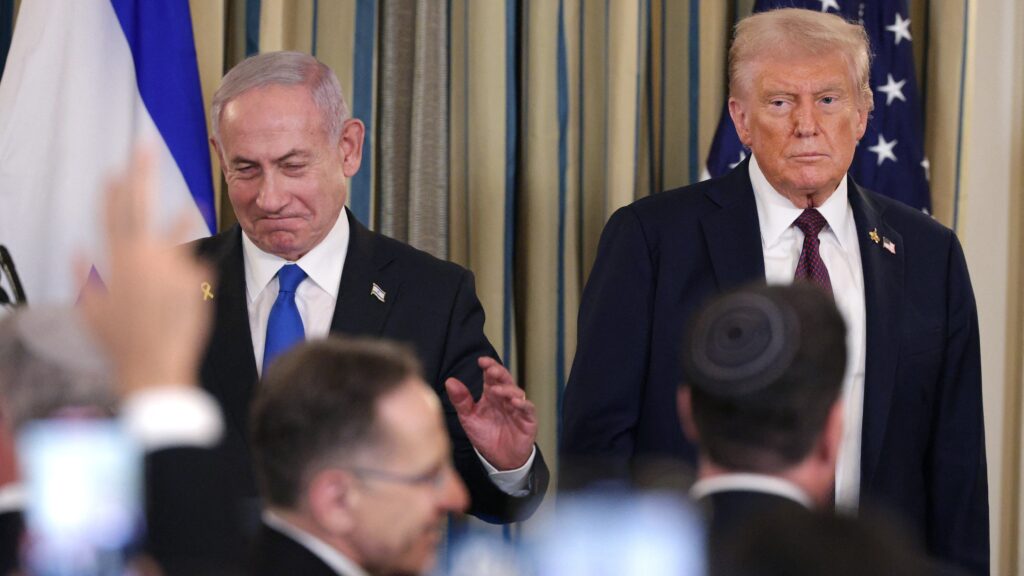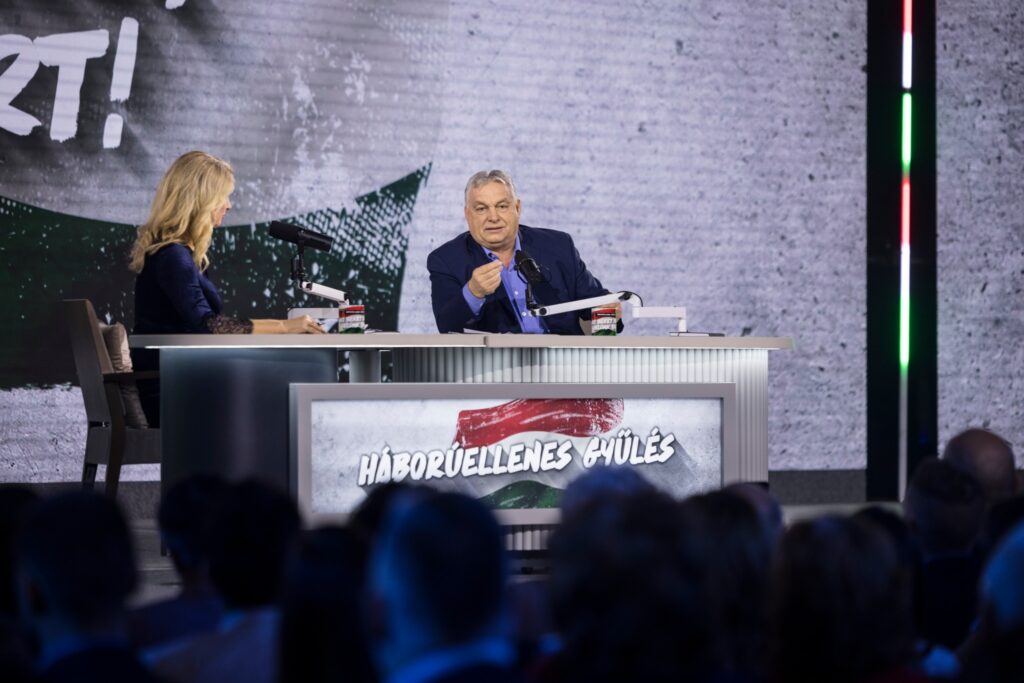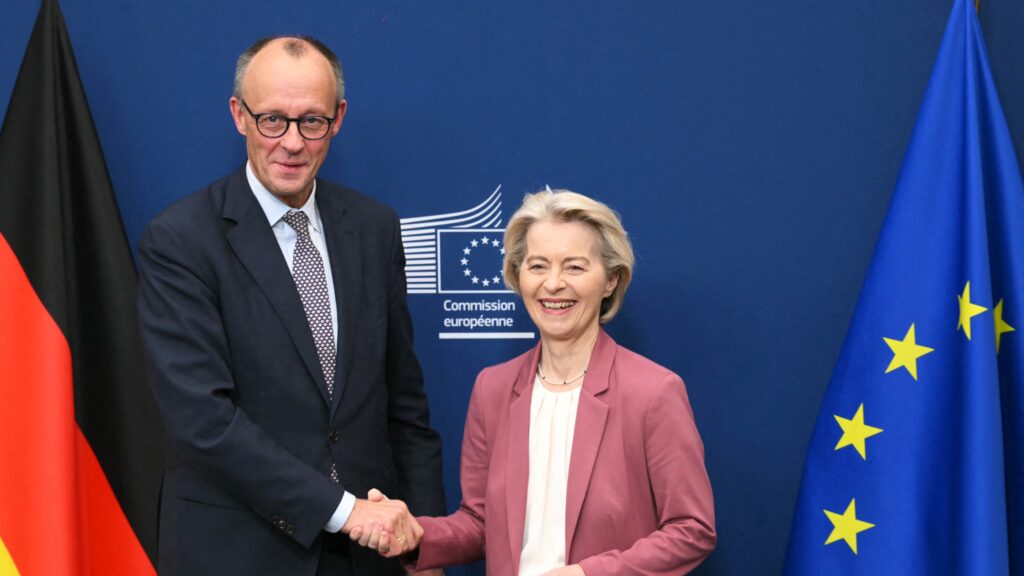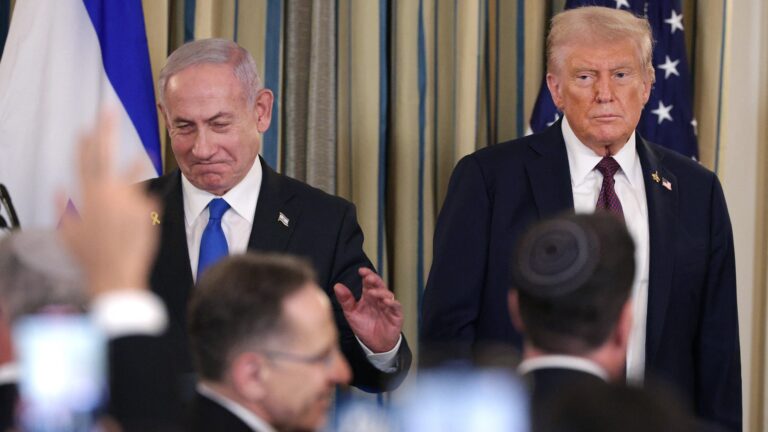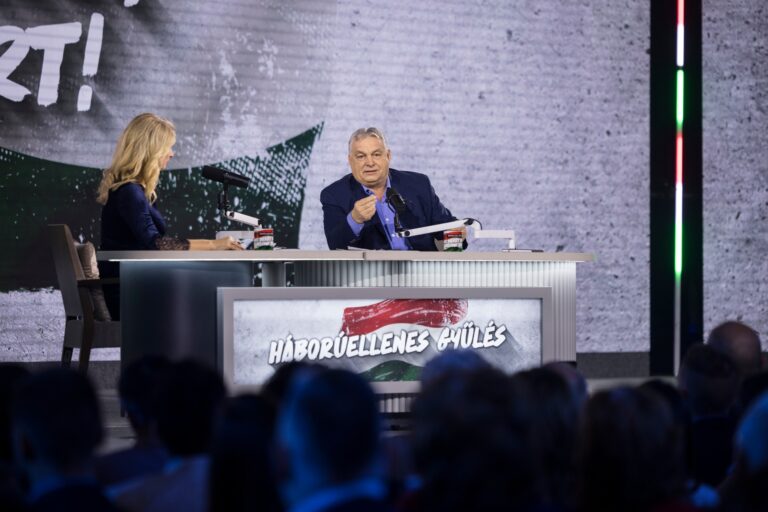The 5th instalment of the Dunabe Institute’s Geopolitical Summit, hosted in cooperation with The Heritage Foundation, is taking place 15–16 September at the Lónyay–Hatvany Villa in Budapest, Hungary. President of the Danube Institute John O’Sullivan was first to greet the many attendees with a short address.
He began by stating that discussions on the overarching theme of the event—the paradigm shifts in the geopolitical landscape—‘could not be more urgent, more timely.’ The multilateral consensus has fragmented, and we do not even know whether we are ‘at the twilight or the dawn’ of a new era, he continued. According to the speaker, the United States is currently undergoing a recalibration under its new leadership, while China and India are emerging as influential global powers.
Mr O’Sullivan, however, also noted that the chaotic and watershed time following the end of World War II led to never-before-seen prosperity in the capitalist West. In fact, as he pointed out, the French are still referring to this period as ‘the glorious 30 years’. At the end of his welcome address, he also shared his condolences about the tragic passing of American conservative activist Charlie Kirk.
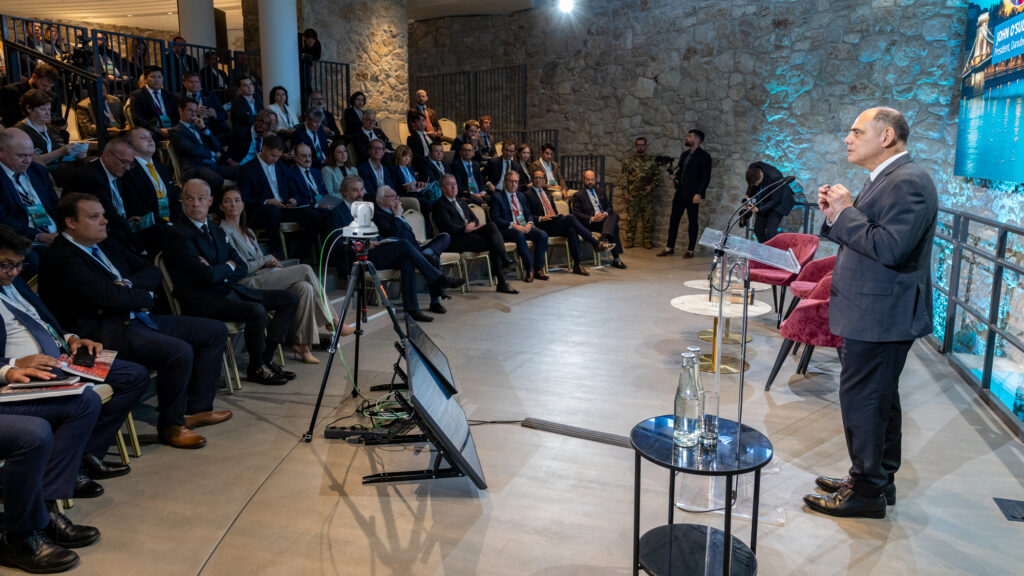
Senior Counselor to the President of the Heritage Foundation James Carafano picked up where Mr O’Sullivan left off, and led the audience in a moment of silence in memory of Kirk. On the topic of the day, geopolitics, he stated that no great power in the world right now has the capacity to establish the dominance of such historical great powers as the British Empire or the United States in the different parts of the 20th century. He also stressed that foreign policy starts with a stable, strong nation, and thus with effective domestic policies—Mr Carafano opined that Charlie Kirk shared that way of thinking as well.
Minister of Defence Kristóf Szalay-Bobrovniczky of Hungary took the stage next, to deliver his keynote address.
He too started with honouring the memory of Kirk. He then went on to describe the current era of geopolitics as ‘the era of independence,’ which is ‘not fully global,’ but rather, ‘multi-polar’. He also pointed out that Europe’s social and economic weakness led to two World Wars in the previous century, which is why a strong Europe is important in this century. Then, he added that ‘the end of history has ended,’ referring to the end of the unipolar world order led by the US.
On the ongoing Russo–Ukrainian war, the Minister has said that the conflict ‘cannot be solved on the frontlines’ anymore. He also opined that ‘Ukraine is no longer playing to win, they are just buying time,’ and added that, unfortunately, they are doing so on credit. Mr Szalay-Bobrovniczky stressed that NATO and EU accession should be off the table for Ukraine, and lauded US President Donald Trump for taking a stance against Ukraine joining NATO. Meanwhile, he also pointed out that Hungary has provided humanitarian and energy support for the Ukrainians since the start of the war.
The speaker then turned to another major ongoing conflict—the one between Hamas and Israel in the Middle East. He stated that Israel is not only a strategic ally of Hungary but is also regarded as a historical part of the Atlantic community. Additionally, Hungary has a vested interest in monitoring the conflict due to its implications for migration and the resulting terrorist threats in Europe.
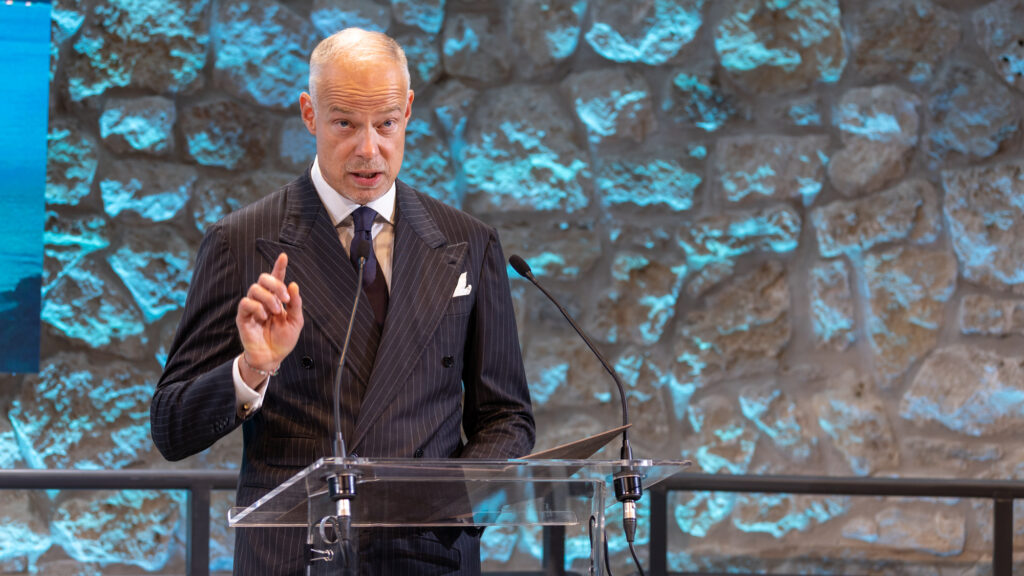
Minister Szalay-Bobrovniczky went on to state that the bases of national security are ‘strong national forces and strong alliances’. While NATO is ‘the cornerstone of our common defence,’ that does not mean that the European Union can avoid stepping up in terms of its own defence capabilities, he warned. He also stressed that the EU Member States should come first in that regard, not Ukraine.
‘The EU Member States should come first in European common defence, not Ukraine’
He then described the EU structure that Hungary is proposing for creation. It would consist of an ‘outer rim’, with countries that only cooperate in military and energy security (which could include the non-EU countries of the United Kingdom, Türkiye, and Ukraine, he added); a secondary rim where countries would also cooperate on the common market; and a tertiary rim of countries sharing the common European currency. The speaker then talked about the issue of EU enlargement, and stressed that the accession process should be merit-based and not ideological. Therefore, the Western Balkans should be the Union’s primary focus for enlargement, he stated.
Mr Szalay-Bobrovniczky also stressed Hungary’s crucial role as an Observer Nation of the Organization of Turkic States, providing a bridge between the global East and West. At the conclusion of his speech, the Minister declared that ‘Hungary has always been a part of Europe, and always will be’; and that it is time to ‘Make Europe great again.’
Related articles:

